Survey Requirements for Subdivision in New Zealand: A Complete Technical Guide
 By
Trent Bradley
·
8 minute read
By
Trent Bradley
·
8 minute read

Survey requirements form the technical foundation of subdivision development in New Zealand, establishing legal boundaries, supporting consent applications, and enabling title creation. Understanding survey requirements is essential for successful subdivision planning, accurate cost budgeting, and regulatory compliance. This comprehensive guide explores all aspects of subdivision survey requirements, from initial planning through final title registration.
Understanding New Zealand's Cadastral Survey System
New Zealand operates a sophisticated cadastral survey system ensuring accurate property boundary definition and legal title security throughout the subdivision process.
Cadastral Survey Framework: The cadastral survey system maintains the official record of land boundaries, ownership patterns, and survey monuments throughout New Zealand. This system ensures legal certainty for property ownership while supporting accurate subdivision development and title creation.
Geodetic Infrastructure: New Zealand's geodetic infrastructure provides the mathematical framework for accurate surveying including horizontal and vertical control networks. Geodetic infrastructure enables survey accuracy and consistency while supporting integration with geographic information systems.
Survey Districts: New Zealand is divided into survey districts providing administrative frameworks for survey plan registration and boundary definition. Survey districts maintain historical survey records while supporting modern subdivision development and title creation.
Licensed Cadastral Surveyors: Only licensed cadastral surveyors may prepare subdivision surveys and survey plans for legal title creation. Surveyor licensing ensures professional competence while maintaining survey accuracy and legal compliance throughout subdivision processes.
Professional Standards: Cadastral surveyors must comply with professional standards including accuracy requirements, documentation standards, and ethical obligations. Professional standards ensure survey quality while protecting public interests in accurate boundary definition.
Legal Authority: Survey plans prepared by licensed cadastral surveyors carry legal authority for boundary definition and title creation. Legal authority ensures survey reliability while supporting secure property transactions and development finance.
Subdivision Survey Types and Requirements
Different subdivision types require specific survey approaches reflecting their unique characteristics, legal requirements, and technical complexity.
Boundary Adjustment Surveys: Simple boundary adjustments between adjacent properties require accurate boundary definition and legal documentation. Boundary adjustment surveys typically cost $8,000-$20,000 depending on site complexity and boundary length.
Fee Simple Subdivision Surveys: Standard subdivisions creating individual freehold lots require comprehensive surveys including boundary definition, area calculation, and easement identification. Fee simple surveys typically cost $15,000-$40,000 for simple subdivisions increasing to $50,000-$150,000+ for complex developments.
Unit Title Surveys: Complex developments requiring unit title structures need specialized surveys defining individual units, common property, and shared facilities. Unit title surveys typically cost $25,000-$80,000+ depending on development complexity and unit numbers.
Cross-Lease Surveys: Cross-lease arrangements require surveys defining building areas and shared land ownership interests. Cross-lease surveys are less common now but may cost $12,000-$35,000 for appropriate developments.
Leasehold Subdivision Surveys: Subdivisions creating leasehold interests require surveys defining lease areas while maintaining underlying ownership structures. Leasehold surveys involve specialized legal and technical requirements.
Strata Title Surveys: Some jurisdictions use strata title systems requiring specialized survey approaches for multi-level developments and shared ownership arrangements.
Legal Survey Requirements and Standards
Subdivision surveys must comply with comprehensive legal requirements ensuring accuracy, consistency, and legal validity throughout New Zealand's cadastral system.
Cadastral Survey Act 2002: The Cadastral Survey Act establishes legal requirements for subdivision surveys including accuracy standards, professional qualifications, and documentation requirements. The Act ensures survey quality while maintaining cadastral system integrity.
Survey Regulations: Detailed regulations specify technical requirements including accuracy tolerances, survey methods, and documentation standards. Survey regulations ensure consistent quality while adapting to technological advancement and professional practice development.
Accuracy Standards: Subdivision surveys must achieve specified accuracy standards depending on survey type, location characteristics, and measurement methods. Accuracy standards ensure legal certainty while enabling cost-effective survey practice.
Monument Requirements: Survey plans must show existing survey monuments and establish new monuments where required. Monument requirements ensure long-term boundary maintenance while supporting future survey activities.
Documentation Standards: Survey plans must comply with detailed documentation standards including drawing conventions, information requirements, and quality standards. Documentation standards ensure plan clarity while supporting title registration processes.
Professional Responsibility: Licensed cadastral surveyors carry legal responsibility for survey accuracy and compliance with professional standards. Professional responsibility ensures survey quality while protecting public interests in accurate boundary definition.
Survey Plan Preparation and Documentation
Survey plan preparation involves detailed technical work ensuring regulatory compliance and supporting successful title creation.
Field Survey Work: Subdivision surveys require comprehensive field work including boundary measurement, level surveys, and infrastructure location. Field work must achieve specified accuracy standards while identifying all relevant boundary information and physical features.
Office Calculations: Survey data requires detailed office processing including coordinate calculations, area computations, and error analysis. Office work ensures accuracy compliance while producing accurate plan documentation and supporting information.
Plan Drafting: Survey plans require professional drafting meeting LINZ standards and conventions. Plan drafting must clearly communicate boundary information while complying with detailed documentation requirements and quality standards.
Quality Assurance: Survey plans require systematic quality checking including calculation verification, accuracy assessment, and compliance review. Quality assurance ensures plan accuracy while preventing costly errors and registration delays.
Supporting Documentation: Survey plans require comprehensive supporting documentation including survey reports, calculation sheets, and field notes. Supporting documentation provides detailed record keeping while supporting plan registration and future survey activities.
Digital Integration: Modern survey practice increasingly uses digital systems for data collection, processing, and plan preparation. Digital integration improves accuracy and efficiency while supporting integration with council systems and title registration processes.
Infrastructure Survey Requirements
Subdivision infrastructure requires specialized survey work supporting design development, construction management, and regulatory compliance.
Topographical Surveys: Infrastructure design requires detailed topographical surveys showing existing ground levels, drainage patterns, and physical features. Topographical surveys typically cost $5,000-$15,000 for standard subdivisions depending on site size and complexity.
Engineering Surveys: Infrastructure construction requires engineering surveys including setting out, level control, and as-built documentation. Engineering surveys ensure construction accuracy while supporting compliance verification and final documentation.
Utility Surveys: Subdivision development requires surveys locating existing utilities and supporting new service installation. Utility surveys prevent conflicts while supporting efficient infrastructure design and construction coordination.
Road Survey Requirements: Subdivision roads require surveys supporting design development, construction management, and council dedication processes. Road surveys ensure compliance with council standards while supporting long-term maintenance requirements.
Stormwater Survey Needs: Stormwater infrastructure requires surveys supporting hydraulic design, construction management, and environmental compliance. Stormwater surveys ensure adequate drainage while meeting environmental protection requirements.
Service Connection Surveys: Individual lot service connections require surveys supporting installation and connection to main infrastructure systems. Service surveys ensure adequate provision while supporting individual lot development potential.
Consent Application Survey Requirements
Resource consent applications require specific survey information supporting application assessment and decision-making processes.
Site Analysis Surveys: Consent applications require surveys showing existing site conditions including topography, vegetation, and improvements. Site analysis surveys support application preparation while demonstrating existing environmental conditions and development constraints.
Proposed Development Surveys: Applications must include surveys showing proposed development including lot layouts, infrastructure design, and building platforms. Development surveys demonstrate compliance with district plan requirements while supporting effects assessment and design evaluation.
Boundary Definition: Consent applications require accurate boundary definition supporting site area calculations and development density assessment. Boundary surveys ensure regulatory compliance while supporting accurate development planning and design.
Easement Identification: Applications must identify existing easements and proposed easement requirements supporting infrastructure provision and access arrangements. Easement surveys ensure legal compliance while supporting long-term development functionality.
Heritage and Environmental Surveys: Consent applications in sensitive areas may require specialized surveys identifying heritage features, ecological values, or archaeological sites. Specialized surveys support environmental assessment while ensuring protection of significant values.
Access and Traffic Surveys: Applications require surveys supporting traffic impact assessment and access design. Traffic surveys provide baseline information while supporting transport planning and safety evaluation.
Construction Survey Support
Subdivision construction requires ongoing survey support ensuring accurate implementation and regulatory compliance throughout development phases.
Construction Setting Out: Infrastructure construction requires accurate setting out surveys ensuring compliance with design specifications and regulatory requirements. Setting out surveys prevent construction errors while supporting quality outcomes and cost control.
Level Control: Construction surveys provide level control throughout infrastructure installation ensuring adequate drainage and compliance with design grades. Level control prevents drainage problems while supporting long-term infrastructure performance.
Progress Monitoring: Construction surveys monitor progress and compliance throughout development phases supporting project management and quality control. Progress surveys ensure construction accuracy while supporting draw-down processes and compliance verification.
As-Built Documentation: Completed infrastructure requires as-built surveys documenting final construction for council records and future maintenance. As-built surveys ensure accurate records while supporting ongoing infrastructure management and future development.
Compliance Verification: Survey work supports compliance verification including council inspections and certification processes. Compliance surveys ensure regulatory requirements are met while supporting project completion and title creation.
Quality Control: Survey work provides quality control throughout construction ensuring compliance with specifications and professional standards. Quality surveys prevent defects while supporting long-term infrastructure performance and reliability.
Technology in Subdivision Surveying
Modern surveying increasingly incorporates advanced technology improving accuracy, efficiency, and integration with other professional services.
GPS and Satellite Technology: Global Navigation Satellite Systems provide accurate positioning for subdivision surveys while improving field efficiency and accuracy. GPS technology enables rapid boundary establishment while maintaining high accuracy standards.
Total Station Systems: Electronic distance measurement instruments provide accurate angle and distance measurement supporting detailed boundary surveys and construction setting out. Total station technology improves field efficiency while maintaining traditional survey accuracy.
Laser Scanning Technology: Three-dimensional laser scanning enables comprehensive site documentation supporting design development and construction management. Laser scanning provides detailed information while reducing field time and improving safety.
Drone Surveying: Unmanned aerial vehicles enable rapid site documentation and progress monitoring supporting project management and compliance verification. Drone technology provides aerial perspectives while reducing survey costs and improving safety.
Digital Data Management: Modern surveys use digital data collection and processing improving accuracy while supporting integration with design systems and council databases. Digital systems provide better data quality while improving professional coordination and client communication.
Geographic Information Systems: GIS technology supports survey data integration with planning information and infrastructure databases. GIS integration improves project coordination while supporting long-term asset management and planning activities.
Survey Cost Management and Budgeting
Understanding survey costs and optimization strategies helps developers budget appropriately while achieving quality outcomes and regulatory compliance.
Cost Structure Analysis: Survey costs typically comprise field work (40-50%), office processing (25-35%), and plan preparation (20-30%). Understanding cost structure helps optimize survey approaches while maintaining quality requirements.
Scope Definition: Clear survey scope definition prevents cost overruns while ensuring adequate service provision. Scope clarity requires professional consultation while balancing cost control with quality requirements.
Timing Coordination: Survey timing coordination with other professional services can reduce costs while improving project efficiency. Coordinated surveys provide better value while supporting integrated project delivery and timeline optimization.
Technology Investment: Survey technology can reduce field time and improve accuracy potentially reducing costs while enhancing service quality. Technology benefits require professional expertise while providing long-term value through improved efficiency.
Quality vs Cost Balance: Survey cost optimization should balance cost control with quality requirements ensuring regulatory compliance and professional standards. Quality investment typically provides better long-term value through reduced risk and improved outcomes.
Multi-Stage Approaches: Complex subdivisions may benefit from staged survey approaches spreading costs over development phases while enabling early progress on completed areas. Staged approaches provide cash flow benefits while maintaining technical quality.
Survey Integration with Other Services
Successful subdivision development requires coordinated survey integration with planning, engineering, and legal services throughout development processes.
Planning Integration: Survey work must integrate with planning applications providing accurate boundary information and supporting regulatory assessment. Planning integration requires early coordination while ensuring consistent information across all professional inputs.
Engineering Coordination: Survey work supports engineering design providing accurate site information and construction support. Engineering integration requires ongoing coordination while ensuring design accuracy and construction feasibility.
Legal Service Support: Survey work provides legal foundation for title creation and contractual arrangements. Legal integration ensures regulatory compliance while supporting secure property transactions and development finance.
Council Coordination: Survey work must coordinate with council requirements including application assessment, inspection processes, and final approval. Council coordination requires understanding of local procedures while maintaining professional standards.
LINZ Integration: Survey plans must integrate with LINZ systems and requirements supporting title registration and cadastral system maintenance. LINZ integration requires compliance with national standards while ensuring efficient title creation.
Quality Coordination: Survey quality must coordinate with overall project quality ensuring integrated outcomes and professional standards. Quality coordination requires systematic approaches while supporting successful project completion.
Regional Survey Variations and Considerations
Survey requirements and practices vary across New Zealand regions reflecting different council approaches, site conditions, and market characteristics.
Auckland Survey Practice: Auckland subdivision surveys involve complex urban environments requiring sophisticated approaches and extensive coordination with council systems. Auckland practice typically involves higher costs but access to advanced technology and specialized expertise.
Wellington Region Variations: Wellington region surveys must address earthquake considerations, heritage constraints, and topographical challenges. Regional practice requires specialized expertise while addressing unique environmental and regulatory requirements.
Canterbury Survey Characteristics: Canterbury surveys benefit from relatively simple topography but must address earthquake recovery requirements and updated standards. Regional practice emphasizes efficiency while maintaining quality standards and regulatory compliance.
Provincial Survey Practice: Provincial areas often involve more straightforward survey requirements with direct professional relationships and simplified processes. Provincial practice may offer cost advantages while requiring local expertise and market understanding.
Rural Survey Considerations: Rural subdivisions often involve larger areas and specialized requirements including farm boundary integration and environmental constraints. Rural practice requires understanding of agricultural systems while addressing subdivision development needs.
Tourism Area Requirements: Tourism and lifestyle areas may involve specialized survey requirements including environmental sensitivity and community expectations. Tourism practice requires understanding of local values while meeting development objectives and regulatory requirements.
Working with Survey Professionals
Successful subdivision development requires professional survey expertise throughout all development phases from initial planning through final title creation.
At Luminate Finance, we understand that survey accuracy and compliance form the foundation of successful subdivision development and work closely with experienced licensed cadastral surveyors across all New Zealand regions.
Our extensive network includes survey professionals with specialized subdivision expertise who provide comprehensive survey services while maintaining cost efficiency and regulatory compliance throughout development processes.
We often coordinate survey planning during project feasibility assessment ensuring survey requirements are understood and budgeted appropriately while integrating survey timing with development finance arrangements and project schedules.
Our comprehensive approach includes survey strategy development, professional coordination, and quality management ensuring survey work supports successful subdivision outcomes while optimizing costs and maintaining professional standards.
Through our involvement in numerous subdivision projects, we've developed deep understanding of survey requirements across different development types and regional markets while building relationships with survey professionals who provide expert subdivision survey services.
Our integrated approach ensures survey work is coordinated effectively with other professional services while supporting successful subdivision completion and title creation within planned budgets and timeframes.
Ready to ensure your subdivision survey requirements are managed professionally? Contact Luminate Finance today to discuss how our understanding of survey requirements and extensive surveyor networks can support your subdivision success through expert survey coordination and comprehensive development finance solutions.

Trent Bradley
Trent Bradley is a New Zealand financial advisor specializing in property-backed finance and investment consulting. With over 26 years of experience running his mortgage broking business, he has helped wholesale investors access high-yield property-backed loan opportunities. For the past 12 years, Trent has led Luminate Finance, a New Zealand finance company dedicated to connecting investors with secure property investment solutions.






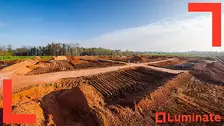


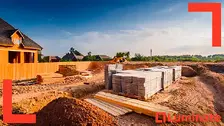
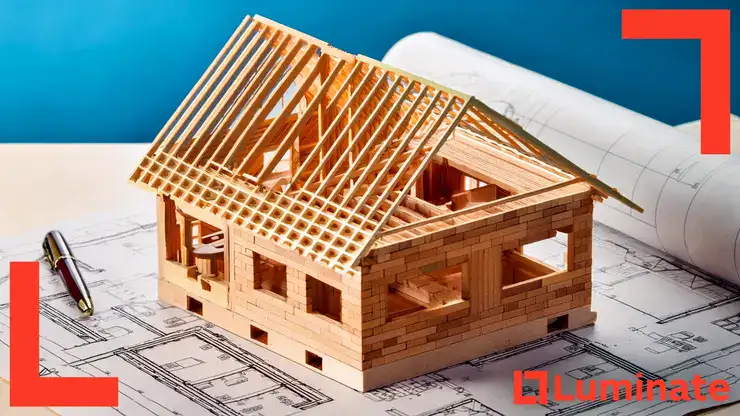







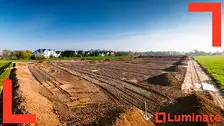
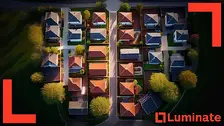







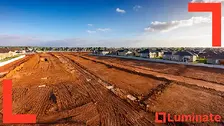
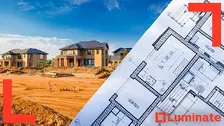
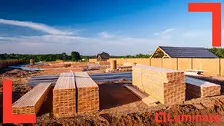



.png?//48413319.fs1.hubspotusercontent-ap1.net/hubfs/48413319/Featured%20images%20(14).png&width=247&height=126&name=Featured%20images%20(14).png)




